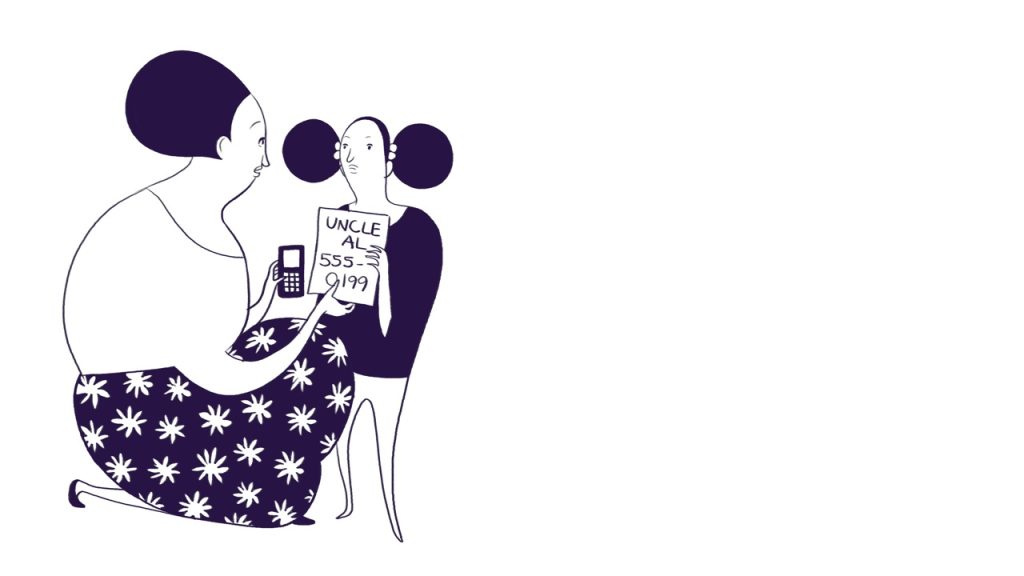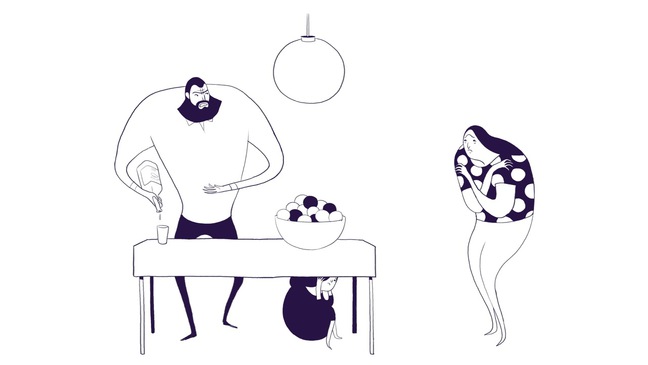How to Stay Safe When a Family Member is Abusing Alcohol or Drugs

There are two key strategies you can use to help you stay safe when confronting a loved one about their drug or alcohol use.
*This post originally appeared on our Member Site blog, where experts respond to members’ questions and concerns. To take advantage of our current special offer and get full access to the Allies in Recovery eLearning program for families, click here.

Illustration © Eleanor Davis
Watch for red flags and back away. Stay safe
A red flag is a cue that your loved one is getting upset. Non-verbal cues may be things like tightening of the fists, getting red in the face, raising a hand in the air, or standing up.
Verbal cues may be phrases like, “Lay off,” “Why don’t you just leave me alone,” “Shut up,” etc. You’ll likely already be able to list the most common expressions your loved one uses.
But by becoming more aware of these cues you can recognize them more quickly. You’ll then create a space to step away rather than engage in the emotion. Say something like, “I’m sorry, I didn’t mean to heat things up,” or, “I’m sorry I upset you.”
Essentially you want to do whatever it takes to back down and calm the situation. You may think this is a cop out. But by backing down now, your loved one is less likely to become violent or stomp out into the night and possibly look for drugs.
You’ll also avoid causing more damage to the relationship. You can then bring up the topic again later when things are calmer.
Use reflective listening
This is actually a skill for any family, not just families with addiction. It means actively listening to what your loved one is saying to you, versus thinking and planning what you’re going to say next. Every so often, summarize what you’re hearing – without adding your own opinion, judgment, analysis or commentary. Just re-state exactly what you’ve heard.
When they pause or stop talking, you’re going to ask, “Is there more?” And if they keep talking, you’re going to summarize again. The purpose here is to communicate in a way that makes your loved one feel understood and heard.
Reflective listening will also buy you more time to think about what to say next and how best to say it. It buys you time to figure out how to de-escalate the situation.
In Video Module #2 on the Allies in Recovery member site, we offer in-depth scripts and safety plans to prepare you for potentially threatening situations. We also give specific examples from other families like yours. Learn more about our unique online approach for ending substance abuse in families.
Join our Member Site today to take full advantage of Allies in Recovery’s program, including 8 video modules, three blogs, and dialogue with experts in the field of treatment and recovery.
